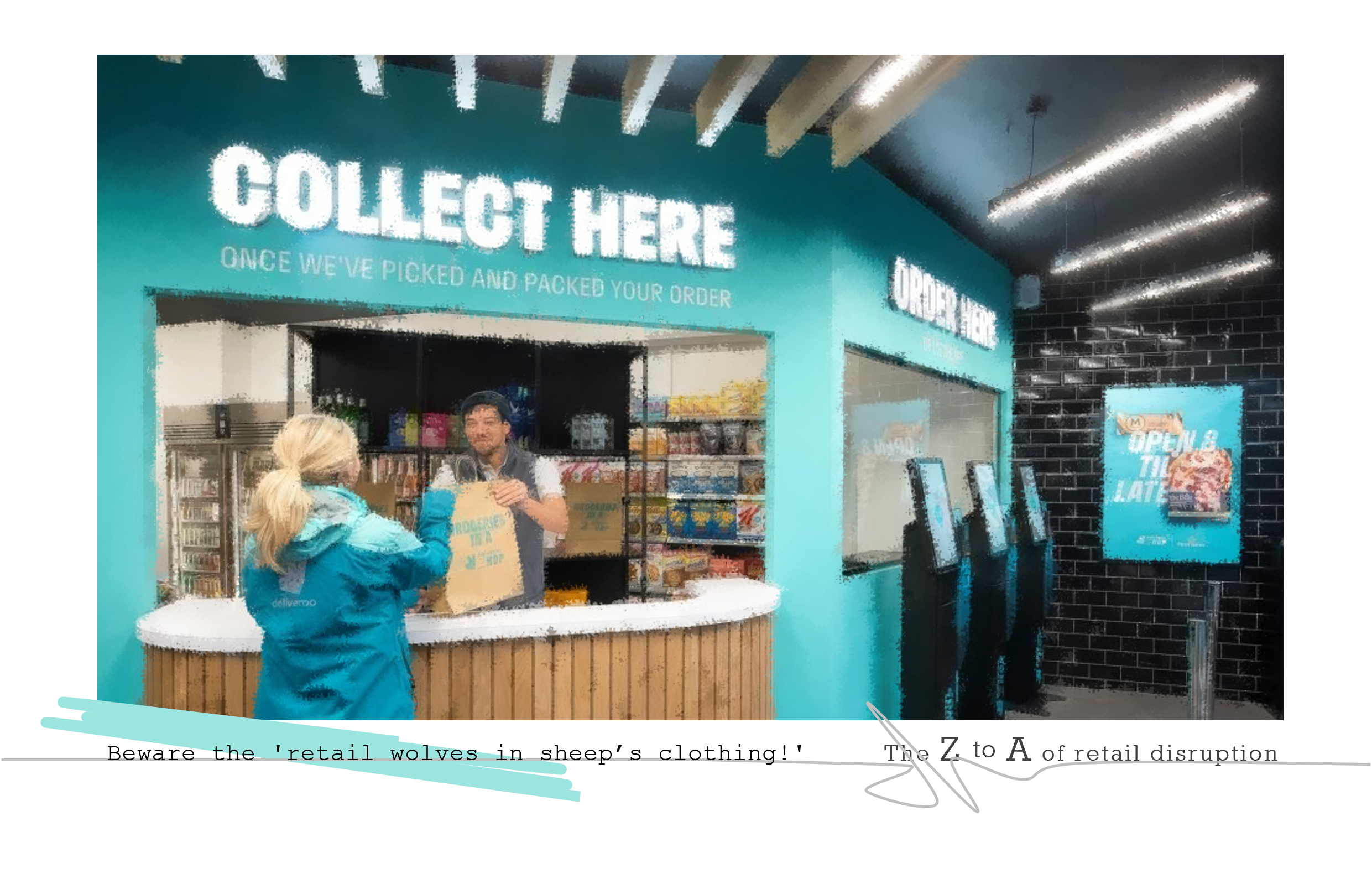Beware the ‘retail wolves in sheep’s clothing!’ Or is Deliveroo nothing more than a ‘sheep in a retail wolf costume?’ As the delivery business opens its first, and perhaps last, physical food convenience store.
The extraordinary COVID lockdown period created a melting pot of retail disruption. The definition itself of what is a retailer, was blown apart and stretched to extremes.
The isolated customers in their homes shifted their major retail touchpoint to their doorsteps. It was an opportunity for logistics companies to be the ‘face of retail,’ sometimes delivering their own branded offering, but more often than not representing the ranges of established retailers and brands.
The big risk for traditional ‘true’ retailers was that they were de-moted to the role of supplier. Critically, and literally, they ‘lost face with the customer.’ Their personal interaction faded, and the void was enthusiastically filled by the delivery, logistics and technology specialists, whose dynamic marketing, and expanding ambitions, propelled them into the role of ‘surrogate retailers’
Companies such as Deliveroo and Uber literally jumped, cycled and drove at the challenge.
With the current ongoing re-balance of physical and digital retail channels, the normality of physical shops driving sales is being restored to a degree.
This is also re-establishing the distinction between true retailers, whose heart is buying & merchandising, with surrogate retailer businesses which have at their heart, technology, services, or logistics, as in the case of Deliveroo.
The re-shift is highlighting and delivering some permanent retail truths for me.
Surrogate retailers are generally not good at retail. Their strategies and customer experience, although disruptive, are not compelling for most customers. The strange hybrid of McDonalds & Argos that Deliveroo has delivered, lays testament to that. And I would also raise Amazon as an example. A truly extraordinary business in the realms of technology and logistics. A true superstar. But a business that seems always to revert to 1950s shop experiences, when it enters and later leaves physical shop retailing.
But equally, true buying & merchandising retailers, generally struggle to achieve the complex technological and logistics capabilities required in today’s multi-touchpoint retail world. With Next as a notable exception.
The bottom line is that retailers & facilitators need to collaborate. There is no alternative. Modern retail is too complex to take on yourself.
But retailers & particularly facilitators, should be very careful not to overstep their skill-sets. Any semblance of omnichannel normality clearly defines their roles, their shortcomings, and their relevance to customers.
And for ‘true’ retailers, it offers the opportunity to re-establish their personal, emotional and physical connection with the customer, after the extreme requirements of lock-down.
To restore ‘faith’ & ‘face!’
So back to normality? Well, maybe for a while.
